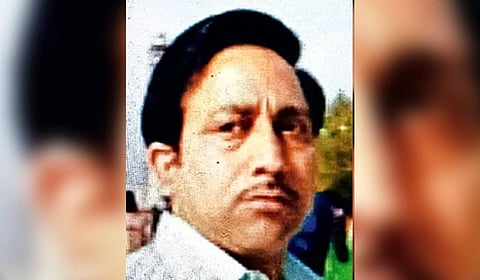Arrested on charges of 'spying' for Pakistan, this UP man is set to become judge a decade after his acquittal
LUCKNOW: He was arrested on charges of spying for Pakistan in June 2002. Presently, the Allahabad High Court has, in a landmark decision, directed the state government to appoint him to UP Higher Judicial Services (HIS) cadre. This comes nearly seven years after 46-year-old Kanpur native Pradeep Kumar's selection was held over due to allegations of espionage and spying for Pakistan.
Kumar, who had been arrested on charges of spying by sharing incriminating information about army installations and other details to his alleged handlers across the border in lieu of money in 2002, was absolved of all the charges by the Kanpur court in 2014. But it took a decade-long battle.
At the time of his alleged involvement in ‘anti-national activities’, Kumar, then 24, was an unemployed lawyer.
After getting exonerated by the Kanpur court, Kumar appeared in examination of PCS (J) (UP Judicial Services) and got selected for HJS in 2016. However, his tainted past kept on chasing him as the state authorities withheld his appointment citing his dubious past
Kumar had faced two criminal trials over espionage charges, sedition, criminal conspiracy, and various provisions of the Official Secrets Act—one in 2004 and another in 2007—both of which resulted in acquittals.
In its 2014 order, a Kanpur court absolving Kumar of the charges, said, “…the prosecution must demonstrate that the accused has expressed or attempted to incite hatred or contempt towards the Government through words, signs, or visible representations. In this case, there is no evidence on record from the prosecution’s witnesses to substantiate claims of such actions against the Government.”
Despite these judgments, the state authorities, ordered by the court of law to appoint him to judicial post, refused to follow the order citing concerns over his character, primarily based on the espionage allegations.
The High Court bench, comprising Justice Saumitra Dayal Singh and Justice Donadi Ramesh, noted in their order that there was no substantial material linking Kumar to espionage for any foreign intelligence agency. The court emphasised that his acquittal in the criminal trial should have cleared him of any stigma and allowed him to move forward with his career.
“What survives with the respondent state authorities is a lingering belief or suspicion that the petitioner had spied for a foreign country," the court stated. However, it added that this suspicion lacked any fresh or objective evidence beyond the original trial.
The court criticised the state’s reliance on outdated and irrelevant materials from the trial, declaring that “neither suspicion nor simple belief" without objective material could guide the state’s decision to withhold the appointment.
The court underscored that Kumar’s acquittal in espionage-related criminal trials must be viewed with fairness, particularly in light of his “honourable acquittal".
It observed that merely being suspected of an offence, without any proven wrongdoing, could not be used as a basis to deny a citizen his/her constitutional rights. “To be suspected of an offence is not an offence or a scar on a citizen’s character," the bench said, emphasising that the fact Kumar was on the “radar" of intelligence agencies was inconsequential in the absence of any factual evidence.
A report of the “military authority” to the Kanpur District Magistrate in July 2019 had stated that Kumar was arrested in a joint operation by the STF and Military Intelligence on June 13, 2002, based on inputs received from “sister intelligence agencies”.
The report had alleged that Kumar had come in contact of Faizan Illahi, an owner of a photostat shop and who allegedly asked him to “provide him some information on telephone in exchange of money”. The report alleged that Kumar, looking for a quick buck, shared sensitive information of the Kanpur cantonment in exchange for money.
The High Court took note of the same report saying: “Unless a citizen is reasonably suspected to be involved in an illegal or other activity that may invite adverse civil consequences, the fact that an intelligence agency or police authority may opine -purely subjectively and thus suspect that such a citizen had indulged in any illegal nature of activity or to have performed such act, without any supportive objective material, may remain a wholly inactionable belief, therefore, extraneous to the issue of character certification of the concerned citizen," the bench said in its order.
The court also rejected the argument that the petitioner’s unemployment status or his financial struggles should be taken into account. It pointed out that many innocent people could face unfair suspicions due to such circumstances, and it would be absurd to base judgment solely on an individual’s financial condition.
Moreover, the bench also rejected the state’s attempt to bring up the allegations against Kumar’s father, who had been dismissed as a judge in 1990 over bribery charges. The court made it clear that a person’s character should not be judged based on the actions of his/her kin. “A person may not be penalised, and their character may not be judged for the act of another," it stated clearly.
In response to the state’s continued suspicion, the court ordered that Kumar’s character be verified within two weeks and directed the authorities to issue his appointment letter by January 15, 2025.
The court clarified that the petitioner could be appointed against the current vacancies as, though selected against a 2017 vacancy, neither of those vacancies survives in the light of the provision of UP HJS Rules.

